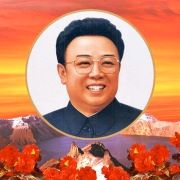|
Is the whole "defending Palestinians is imperialism and white supremacy" thing something that's been circulating for a while? It seems like it has just popped up in the last few months, but maybe I am sheltered from that sort of horrible poo poo.
|
|
|
|

|
| # ? May 10, 2024 20:33 |
|
It fits in the long tradition of the right trying (and often succeeding) at weaponizing the liberal-warped version of left wing rhetoric against the the left to get (more) liberals to support (more) right wing positions.
|
|
|
|
I think it's just really really stupid people, not any sort of organized thing. The RW is all hands on the support israel wagon and anything to the contrary gets sidelined pretty quick
|
|
|
|
V. Illych L. posted:there's a fair amount of evidence that the soviets, though a combination of political priorities and simple neglect, condemned the ukrainian countryside to a worse fate than the russian metropole; they also continued their industrialisation programme at a time when they probably could've prioritised feeding people. the idea that it was a deliberate, targeted genocide doesn't hold up, though - parts of central asia were hit worse, proportionally, than ukraine was I don't think this reasoning holds water. It's like saying the Nazis killed more Roma proportionately than Jews so they can't have been genociding Jews. (I just made the statistic up as an example). There's a long history of racism towards central Asians by the Russian state and afaik the USSR continued that. I'm not sold either way on the question of the holdomor being a genocide but if famine was used as a tool to bring a certain subset of the population into line then I think it counts. Lemkin is pretty clear in his definitions that killing part of a group can qualify. I think this becomes more of an argument about what counts as genocide pretty quickly. It wasn't long after the holdomor (possibly even during it) that Ukrainians were one of the three trusted ethnicities in the armed forces, able to hold posts barred to other races. Stalin was certainly not interested in wiping them out.
|
|
|
|
Milo and POTUS posted:
One of the top sixty billion, anyway.
|
|
|
|
Weka posted:I don't think this reasoning holds water. It's like saying the Nazis killed more Roma proportionately than Jews so they can't have been genociding Jews. (I just made the statistic up as an example). There's a long history of racism towards central Asians by the Russian state and afaik the USSR continued that. the holodomor narrative is that it was a deliberate, artificial famine targetted at ukrainians specificaly, which is not the case as evidenced by certain central asian SSRs being even harder hit. had the soviet union been a genocidal state committed to wiping out several other groups, they could indeed be said to have genocidal motivations towards the ukrainian. but they weren't, so it can't.
|
|
|
|
Weka posted:There's a long history of racism towards central Asians by the Russian state and afaik the USSR continued that. The whole situation is much more complicated than this. The Soviets were officially anti-racist with regards to central asia. They were interested in modernization, which definitly conflated ideas of the "Oriente" with anti modern, see for example the Latinization campaigns. They also had minority quota systems and protected minority languages to such an extreme extent that parents begged the government to let their children learn Russian, instead of being instructed in Nenets or something. The genocide issue is tricky as it was not an attempt to eliminate the Ukrainian people and was mostly perpetrated by the communist party of Ukraine (Ukraine as officially a successor state, per its constitution, should acknowledge its culpability). It was definitely a classicide though. Now people try to represent it as an inherently Russian genocide of Ukrainians, which is certainly not an accurate interpretation.
|
|
|
|
The narrative that genocides are only something that foreign swarthy others and occasional Austrian do is pretty dangerous
|
|
|
|
a better proof that Stalin was evil would be that he allowed Beria to operate with impunity
|
|
|
|
stalin was a psycho, but the soviet union wasn't really set up as a vehicle for the extermination of peoples. its doctrine on the national question (formulated by stalin himself originally!) was explicitly multinationalist and while certainly problematic this was part of why the soviet union could largely accommodate the huge and extremely diverse territories of the former russian empire
|
|
|
|
it doesnt help that the groups of Ukranian diaspora pushing the deliberate genocide angle are literally Nazis and the families of Nazis trying their hardest to push the "dual genocide" myth that equates Stalin with Hitler and absolve their grandparents of carrying out horrific atrocities against Jews because hey we were also the target of genocide Banderites are THE preeminent Ukranian diaspora org and have by far the most pull in the halls of power in the West - see: the Canadian Foreign Minister helping tax dollars go to what I think could be described as a holocaust denying group because her grandfather was a Ukranian nazi propagandist whom she has nothing but loving respect for
|
|
|
|
Stalin prioritized selling grain to support heavy industry over Ukrainian lives. An evil policy like the Holodomor can be bad without being directly the same as the Holocaust, which had its first priority as the destruction of European Jewish people. And contemporary Ukrainian fascists definitely do try to equate Stalin and Hitler as equally bad, while a more accurate comparison would be Churchill's genocidal policies in India that killed five million people with the Bengal Famine.
|
|
|
|
paul_soccer12 posted:it doesnt help that the groups of Ukranian diaspora pushing the deliberate genocide angle are literally Nazis and the families of Nazis trying their hardest to push the "dual genocide" myth that equates Stalin with Hitler and absolve their grandparents of carrying out horrific atrocities against Jews because hey we were also the target of genocide they have statues for bandera all over western ukraine, the part the the UPA and then soviets ethnically cleansed of poles
|
|
|
|
Weka posted:I don't think this reasoning holds water. It's like saying the Nazis killed more Roma proportionately than Jews so they can't have been genociding Jews. (I just made the statistic up as an example). There's a long history of racism towards central Asians by the Russian state and afaik the USSR continued that. The academic debate over the Holodomor is about intentionality in particular. The big question is, was the famine an intentional famine to starve Ukrainians for being Ukrainians, or was it not? Answering "not" doesn't mean there was no famine, or that Ukrainians weren't badly affected, because there was and they were, along with the Volga, the northern Caucasus, and parts of Central Asia, especially Kazakhstan. But "not" also includes multiple other, and often overlapping, potential motivations. The primary motives of the Soviet government were to extract an agricultural surplus to fund industrialization, and to enact the collectivization of agriculture, which they thought would simultaneously liquidate kulaks as a class, getting rid of a group inherently defined as enemies of the Soviet state and (they thought) also raising the productivity of agriculture in the long run because collective farms would be more efficient than private or traditional ones. In other regions, there were additional overlapping motivations. In Kazakhstan, for instance, one additional motivation for collectivization was to try and transition nomadic herder populations into settled farmers. The yes-genocide side argues that it was genocide because Stalin saw Ukraine as a site of resistance to Soviet rule and wanted to starve Ukrainians into submission. The no-genocide side argues that Stalin had little reason to target Ukrainians in particular, that the famine affected the entire USSR rather than just Ukraine, and that the motivation for collectivization was much more complex, and often much more utilitarian, than just wanting to hurt Ukraine. The yes-genocide side also often simplifies the fight into an imperial Russian state in Moscow oppressing a colonial Ukrainian territory, as a way to draw parallels to other eras of Russian exertion of power in Ukraine, which doesn't fully account for the reality that the Soviets were a categorically different kind of polity with a much stronger ideology than just imposing imperial rule. The no-genocide side tends to have a more convincing account in part because it takes seriously the Soviets' deeply-held ideological beliefs, like the assumption that kulaks were wealthier than they really were, which explains famine-related choices like how when grain requisition policies failed to bring in as much grain as expected, Soviet decision-makers didn't respond by decreasing grain requisitions, they responded based on their underlying assumptions that a) the kulaks were wealthy, and b) the kulaks were a counter-revolutionary class, and so came to the conclusion that the kulaks were hoarding food to sabotage the collectivization and industrialization campaign. Confiscating the remaining food that was keeping a lot of peasants from starving can be explained better by Soviet ideology that either believed they were hiding enough grain that they would still be okay, or just didn't care that the peasants would starve because they were seen as counter-revolutionary saboteurs and their survival was less important than the industrialization campaign for which the grain was being requisitioned. When you take into account the deeply-held ideological assumptions of Bolshevik decision-makers, in my opinion that explanation makes more sense than seeing these same events through an imperial or genocidal mindset that willfully or intentionally starved Ukrainians to death for the sake of crushing Ukraine.
|
|
|
|
^ good post ty Is it true the kulaks sometimes destroyed harvests rather than surrender them?
|
|
|
|
paul_soccer12 posted:^ good post ty Yes, though it wasn't just kulaks who did that as part of resistance to collectivization. Here's the top scholar on this subject explaining things in her book on the subject: Lynne Viola, Peasant Rebels Under Stalin: Collectivization and the Culture of Peasant Resistance (Oxford UP, 1996), 68 posted:The most vivid and dangerous form of self-help was what Soviet power labeled razbazarivanie, or the "squandering" of livestock and sometimes farm implements, machinery, and even crops through destruction or sale. As protest, sabotage, or a way to liquefy assets, razbazarivanie enabled peasants to gird themselves against the economic perils of the new collective farm system. For some peasants, those labeled kulaks, razbazarivanie was one method among many of socioeconomic transfiguration or, to use the official term, samoraskulachivanie ("selfdekulakization"). Self-dekulakization embraced other stratagems, including, in the end, complete flight from the countryside so that selfdekulakization became self-depeasantization. Both razbazarivanie and self-dekulakization served as literal forms of inversion, as peasants endeavored to upturn Communist-imposed definitions of "class" in the village. She goes into a lot more depth in the following pages. The short story is that peasants saw collectivization as theft, and they often responded by destroying what was to be collectivized instead of taking it with them when their land was collectivized--they slaughtered livestock (there was a massive decline in USSR-wide livestock numbers during collectivization), hid food, sold tools and livestock and food on the open market to try and build up cash reserves, turned grain into higher-value alcohol rather than sell it for prices they considered too low, and in extreme circumstances destroyed things like agricultural machinery rather than hand them over to the collective farms. The Soviets, rather than recognize this as mass resistance to their political program, responded based on ideological assumptions, some Bolshevik-specific and some based in longstanding Russian intelligentsia beliefs about the backward, benighted peasantry, by labeling this razbazarivanie, "squandering," as a way to say it was stupid peasants being manipulated by kulaks into squandering their things rather than a mass act of political resistance, which would have forced them to confront the fact that collectivization was deeply unpopular and destructive. So they responded by accelerating the violently coercive aspects of dekulakization, like arresting and exiling people, since they assumed that it was the kulaks who were responsible for a broadly shared peasant culture of resistance. Here are some examples, taken from p. 78:  The Soviets successfully collectivized agriculture, but agricultural productivity dropped drastically in part because of (to be clear, absolutely not entirely because of) peasant resistance to collectivization, which the peasants saw as daylight robbery imposed at the barrel of a gun. Declines in productivity (for example, slaughtering horses and then not having them available to pull plows), declines in acreage sown, declines in overall food production, and the destruction of reserve supplies (for example, slaughtering livestock that you might have been able to eat if the harvest failed, or turning a grain stockpile into alcohol for sale rather than let it be requisitioned), all then played some contributing role to famine a couple of years down the line. vyelkin has issued a correction as of 00:19 on May 11, 2021 |
|
|
|
tyvm
|
|
|
|
Do you think that a peaceable, fully successful and productive collectivization campaign was possible, through either viewing the peasants as another revolutionary class and not lumpenproles and thus taking more time to reach out to them or other more attempts to reach a more productive relationship, or was collectivization always doomed to be less productive than personal and private farming?
|
|
|
|
before collectivization the countryside had been mostly neglected, the peasantry was still illiterate, party cells only existed in like (iirc) 20-25% of all kolkhoz and the ones that did were quickly infiltrated by former tsarist bureaucrats and wealthy kulaks. its understandable why they didnt think too fondly of Moscow when push came to shove and collectivization became absolutely necessary
|
|
|
|
mcclay posted:Do you think that a peaceable, fully successful and productive collectivization campaign was possible, through either viewing the peasants as another revolutionary class and not lumpenproles and thus taking more time to reach out to them or other more attempts to reach a more productive relationship, or was collectivization always doomed to be less productive than personal and private farming? That's getting pretty far outside my wheelhouse so I can't give a detailed answer, but my initial feeling is that it might have been possible under completely different circumstances, like with a different political party in charge that had a higher degree of support among the peasantry (the Socialist-Revolutionaries, for instance, actually had mass support among the peasants in 1917 and so a collectivization campaign run by them with different ends in mind might have had a higher degree of peasant buy-in) and one that paid more attention to peasants' actual desires (which were mostly to be left alone), but that the Stalinist leadership was fundamentally opposed to that sort of conciliation and much more interested in destroying the peasantry and remaking them in a Stalinist image. In those circumstances of apocalyptic conflict (Viola argues that it was essentially a second civil war) and enforcement with violent repression I think it was virtually inevitable that collectivization would end up less productive, the same way the Gulag viewed as an economic endeavour was always going to be less productive than paying willing labourers to do work.
|
|
|
mcclay posted:Do you think that a peaceable, fully successful and productive collectivization campaign was possible, through either viewing the peasants as another revolutionary class and not lumpenproles and thus taking more time to reach out to them or other more attempts to reach a more productive relationship, or was collectivization always doomed to be less productive than personal and private farming? afaik collectivisation in china proceeded relatively well (at least until the great leap forward), in part because mao's communist party's base was always the peasantry.
|
|
|
|
|
e-dt posted:afaik collectivisation in china proceeded relatively well (at least until the great leap forward), in part because mao's communist party's base was always the peasantry. Honestly, i think it had more to do with Chinese agriculture already being more set up for collectivization from the start. Chinese farmers were much more accustomed to their governments doing such things as certain aspects of collectivization were more normal to them. In Russia, agricultural practice was more individualistic and based on traditional structures of ownership, due to the way serfdom ended and to some extent the way the revolution in 1917 kicked over their landlords.
|
|
|
|
mcclay posted:Do you think that a peaceable, fully successful and productive collectivization campaign was possible, through either viewing the peasants as another revolutionary class and not lumpenproles and thus taking more time to reach out to them or other more attempts to reach a more productive relationship, or was collectivization always doomed to be less productive than personal and private farming? concentrated, industrialized agriculture *is* more productive than having millions of scattered independent freeholds. that's why agriculture in the USA is more productive and has better yields than where independent un-concentrated small peasant run farms that still exist, for example in India. under capitalism concentration takes the form of agribusiness, so like from the POV of a farm laborer it's really not that much of a difference whether the firm you're working for is a private capitalist mega-ag corp or a nationalized state owned one (other than that you might get better salaries/working conditions from the latter). the problem is that, for obvious reasons, people who own land tend to be resistant to be reduced to mere labour on that land. under unchecked capitalism this sort of happens naturally; big business outcompetes small farmers, and buys them out. small farmers can only be maintained by state subsidy in the long term (iowa corn guys with political connections, etc). in india they're currently trying to concentrate agriculture by the means of *removing* existing subsidies so the small farmers literally can't survive/compete, and have to sell off. in the USSR after the 1917 revolution, land reform had given peasants vast amounts of land for themselves. but again, unconcentrated agriculture sucks rear end, and to concentrate it they'd have to dispossess a bunch of people. naturally people tend to be resistant to having their land taken away and the botched collectivization process ended up loving their agriculture for years (it did get better post ww2). i think the soviets could have pulled collectivization off by supporting the kulaks - let them get bigger and bigger, richer and richer, buy out the poor peasants and turn them into farmhands and landless labour/industrial precariat, and then nationalize the big agribusiness concerns that would emerge like they did in the capitalist economies. in that kind of process, i think ironically they'd probably have had the support of the peasantry and farm labor when it came to the nationalization part mila kunis has issued a correction as of 16:32 on May 11, 2021 |
|
|
|
iirc fucky things were already happening with grain prices that basically forced the communists' hands but i'm going completely off half-remembered gut feelings here so you may be right
|
|
|
|
Ferrinus posted:iirc fucky things were already happening with grain prices that basically forced the communists' hands but i'm going completely off half-remembered gut feelings here so you may be right My understanding is that there was some sort of gold ban wherein the USSR couldn't pay other countries with gold or coal or whatever for industrial components, but only grain was accepted by western nations as a way to gently caress with the Soviet economy.
|
|
|
|
Ferrinus posted:iirc fucky things were already happening with grain prices that basically forced the communists' hands but i'm going completely off half-remembered gut feelings here so you may be right There were a series of economic crises in the 1920s under the New Economic Policy, almost all emerging out of the need to delicately balance the needs of the towns and the countryside. The towns wanted high prices on industrial goods to spur the growth of industry and low prices on grain so they could eat more. The countryside wanted high prices on grain so they made more money selling it to the cities and low prices on industrial goods so they could buy more of them. When grain prices got too high, the cities went hungry and went out on strike. When grain prices got too low, the peasants rationally stopped selling food since they weren't making money off it. This situation stabilized in the mid-20s and there was modest growth, but there was a big divide in the Party over how to move past that model. On the "left" in this fight were people who wanted to cut grain prices and extract an agricultural surplus from the peasantry, by force if necessary, to fund the growth of industry in the towns, both by using the food to supply workers and industries and by selling it abroad to finance industrialization. On the "right" in this fight were people who thought that the only thing keeping the USSR stable was the smychka, a term for the alliance between workers and peasants that had allowed for this modest growth and the end of the instability from the civil war. They wanted more gradual, peasant-focused growth, reasoning that the bulk of the Soviet population (somewhere around 80-90% of the population, after all, depending on the year and the definition) were peasants and the best way to grow the economy was to increase their incomes and develop them as a massive internal market for industrial goods, while simultaneously educating them into socialism. Stalin being Stalin, he migrated from one stance to the other over time as a way to marginalize his rivals, but generally speaking Lenin (before his death in 1924), Bukharin, and Stalin were all on the right of this debate and Trotsky, Zinoviev, and Kamenev were on the left - the "left opposition." Funnily enough, a few years after Lenin's death Bukharin was even calling for basically this idea, at least the early stages: mila kunis posted:i think the soviets could have pulled collectivization off by supporting the kulaks - let them get bigger and bigger, richer and richer, buy out the poor peasants and turn them into farmhands and landless labour/industrial precariat, and then nationalize the big agribusiness concerns that would emerge like they did in the capitalist economies. in that kind of process, i think ironically they'd probably have had the support of the peasantry and farm labor when it came to the nationalization part He even specifically called for investment to go to the kulaks, which was disturbing for the left opposition who wanted pro-worker policies at the expense of the kulaks, rather than vice versa. This went beyond what Lenin had called for before his death, but was an extension of Lenin's own focus on appeasing the peasants, since he had decided that absent a successful international revolution, the only way the USSR would survive was to keep the peasants onside. But then in the late 20s the economy ran out of growing room left over from restoring what had been damaged or destroyed in the war, and needed new sources of investment. And on top of that, 1927 saw a war scare that spooked the leadership and pushed them towards being much more favourable to a crash program of industrialization. Stalin responded by moving to the left, marginalizing what was now called the "right opposition" (Bukharin especially) and pursuing what the left had been calling for the whole time, extracting an agricultural surplus from the countryside to benefit the industrial towns, abandoning market mechanisms and using force if necessary, and that's what led to collectivization as a centrepiece of the First Five-Year Plan. Was their hand forced? Maybe, maybe not. Clearly there was an alternative current of economic thought within the Party that focused on developing the peasantry as a vast internal market for industrial goods. Pursuing that line of development might have led to a slower rate of industrial growth in the short run, but the general consensus among historians these days is that pursuing slow, steady growth in agriculture probably would have led to better economic growth and industrialization in the long run, since collectivization was so damaging and destructive to agricultural productivity and to the peasantry which, again, was the overwhelming majority of the Soviet population. Collectivization made it easier for the state to seize grain from the peasantry, but it didn't actually improve the production of grain, and the insecurity it forced onto the peasantry contributed to further crises and economic problems for decades. What it did do was forcibly extract the agricultural surplus that the state wanted, and so funded Stalin's rapid industrialization drive in the 30s, which even with more recent estimates that have deflated some of the wilder Soviet claims, are basically unparalleled in modern history except in states recovering after wartime devastation, like Germany and Japan after WW2. The open question has always been "given that that industry probably helped the Soviets beat the Nazis, was it worth it?" and that's something that's basically impossible to answer definitively, since we will never know what the medium-term growth in industry would have been in the counterfactual scenario where Bukharin keeps dictating economic policy through the 1930s and where massive resources aren't simultaneously expended on constructing the coercive Stalinist state. vyelkin has issued a correction as of 20:14 on May 11, 2021 |
|
|
|
https://twitter.com/ahumblebunnie/status/1392065252616019969
|
|
|
|
can you all make a new thread to discuss the holodomor
|
|
|
|
Jose posted:can you all make a new thread to discuss the holodomor https://forums.somethingawful.com/showthread.php?threadid=3760900&userid=0&perpage=40&pagenumber=1 all are welcome
|
|
|
|
who knew  https://twitter.com/MatthewFerrari/status/1391918103471312900
|
|
|
|
i do not think this woman has read uhhhh , any anarchist theory
|
|
|
|
ANARCHY = NO TECH 
|
|
|
|
Flesh Forge posted:ANARCHY = NO TECH my favorite part of the conquest of bread was when Petey K said that having abortions is morally evil and that all technology was forever bad
|
|
|
|
vyelkin posted:Stalin being Stalin, he migrated from one stance to the other over time as a way to marginalize his rivals these two thoughts seem completely at odds. on the one hand Stalin did X simply to marginalize his rivals; on the other hand, he did X in response to specific economic and political events that forced his hand? I feel like you should pick one or the other
|
|
|
|
Stalin was a land of contrasts
|
|
|
|
indigi posted:these two thoughts seem completely at odds. on the one hand Stalin did X simply to marginalize his rivals; on the other hand, he did X in response to specific economic and political events that forced his hand? I feel like you should pick one or the other Both those statements can be true because things changed over time. At first Stalin allied with Zinoviev and Kamenev against Trotsky (the "left opposition"), then Stalin allied with Bukharin against Zinoviev and Kamenev (the "new opposition"), then being marginalized pushed Trotsky, Zinoviev, and Kamenev together so Stalin and Bukharin took on all three of them (the "united opposition"), then ultimately Stalin turned to the left, adopted many of the policies of the left opposition, and marginalized Bukharin (the "right opposition"). Through all this Stalin represented the centre, tacking between the left and right factions and using his position in the centre to consolidate power and marginalize his rivals. For most of that period Stalin had both political and ideological stances in common with Bukharin, with both of them advocating socialism in one country over internationalism, but ultimately when confronted with the war scare and economic problems of the late 20s Stalin purged Bukharin from the leadership and adopted the basic developmental principles of the left oppositionists, i.e. the extraction of an agricultural surplus to fuel industrialization. What your post suggests is that Stalin was either a calculating politician or someone responding to economic and political events, but in fact he was both and his actions over the course of the 20s reflect both of those things at different points in time, based on the political situation at the top of the Party and on the broader socioeconomic conditions of the USSR. vyelkin has issued a correction as of 01:35 on May 12, 2021 |
|
|
|
vyelkin posted:Both those statements are true because things changed over time. At first Stalin allied with Zinoviev and Kamenev against Trotsky (the "left opposition"), then Stalin allied with Bukharin against Zinoviev and Kamenev (the "new opposition"), then being marginalized pushed Trotsky, Zinoviev, and Kamenev together so Stalin and Bukharin took on all three of them (the "united opposition"), then ultimately Stalin turned to the left, adopted many of the policies of the left opposition, and marginalized Bukharin (the "right opposition"). Through all this Stalin represented the centre, tacking between the left and right factions and using his position in the centre to consolidate power and marginalize his rivals. For most of that period Stalin had both political and ideological stances in common with Bukharin, with both of them advocating socialism in one country over internationalism, but ultimately when confronted with the war scare and economic problems of the late 20s Stalin purged Bukharin from the leadership and adopted the basic developmental principles of the left oppositionists, i.e. the extraction of an agricultural surplus to fuel industrialization. What your post suggests is that Stalin was either a calculating politician or someone responding to economic and political events, but in fact he was both and his actions over the course of the 20s reflect both of those things at different points in time, based on the political situation at the top of the Party and on the broader socioeconomic conditions of the USSR. I'm not disputing any of those facts, just your interpretation of them. you claimed he did it as a way to marginalize his opponents, then that he did it because of all the other reasons you listed (which had the happy side effect of marginalizing his opponents). it seems like he would have been compelled to switch tactics - whether it was a turn towards the left or right - in the late 20s no matter what the situation was among the rival factions, and that no matter what choice he made it would have marginalized some portion of his rivals. (given the war scare, it seems like rapid industrialization offered more hope to the survival of the USSR, but like you said, who knows really) unless there's a reason you think he wouldn't have migrated his position in response to the domestic and geopolitical situation idk how you can claim he did it specifically to marginalize his opponents rather than that it happened to marginalize his opponents e: to clarify I don't think Stalin was a shining beacon of virtue or that he didn't have a bunch of his political enemies jailed or murdered, I just don't think the entire economic future of the USSR in crisis could be dictated by his personal vendettas indigi has issued a correction as of 01:47 on May 12, 2021 |
|
|
|
its not that hard to understand if you accept that stalin valued maintaining as much personal control as possible over the party and the soviet state above all else. the industrialization that took place which everyone fetishizes as being stalins project was the position of the left opposition, however that opposition also offered a political alternative in leadership to stalin and bukharin on both the domestic economic issues as well as the international politics of the comintern, which bukharin was secretary of during the period. once the left was purged and marginalized, he could turn against the right to eliminate rivals there as well while embracing the politics of the left, some of which were popular and beneficial to adopt both for him and the ussr. if it was simply a matter of political debate and disagreements or timing, then there would have been no reason to purge the party of so many in opposition, specifically on spurious and unfounded charges that history has clearly demonstrated were not true and were likely invented on stalins order. he basically lifted the playbook of the french directorate though with better results.
|
|
|
|
in terms of social forces, yes it is true that individual great men do not control and guide history, however it's also incorrect to downplay or ignore the effect that singular leaders can and do have on social movements, from trotsky's "the class, the party, and the leadership" which everyone should read all of cause its short and nearly every line has a lot of insight: "Our author substitutes mechanistic determinism for the dialectic conditioning of the historical process. Hence the cheap jibes about the role of individuals, good and bad. History is a process of the class struggle. But classes do not bring their full weight to bear automatically and simultaneously. In the process of struggle the classes create various organs which play an important and independent role and are subject to deformations. This also provides the basis for the role of personalities in history. There are naturally great objective causes which created the autocratic rule of Hitler but only dull-witted pedants of “determinism” could deny today the enormous historic role of Hitler. The arrival of Lenin in Petrograd on April 3, 1917 turned the Bolshevik party in time and enabled the party to lead the revolution to victory. Our sages might say that had Lenin died abroad at the beginning of 1917, the October revolution would have taken place “just the same.” But that is not so. Lenin represented one of the living elements of the historical process. He personified the experience and the perspicacity of the most active section of the proletariat. His timely appearance on the arena of the revolution was necessary in order to mobilize the vanguard and provide it with an opportunity to rally the working class and the peasant masses. Political leadership in the crucial moments of historical turns can become just as decisive a factor as is the role of the chief command during the critical moments of war. History is not an automatic process. Otherwise, why leaders? why parties? why programs? why theoretical struggles?"
|
|
|
|

|
| # ? May 10, 2024 20:33 |
|
the left opposition opposed the NEP from the beginning and wanted to just roughly yoke the peasantry to the proletariat according to marxist orthodoxy, and also, according to marxist orthodoxy, pursue an adventurist policy of spreading revolution to the first world as fast as possible because of course the crude, backwards peasants of asia and eastern europe could never be counted on for socialist construction. meanwhile the right opposition wanted to cotton to the peasantry and continue to allow private markets to flourish even in the face of western trade drying up and the increasingly obvious threat of fascist invasion. sensible centrist stalin was able to chart the middle path between these two positions and enjoyed majority cpsu support in doing so because he'd built up widespread trust and support and his plan actually fit the circumstances
|
|
|






























